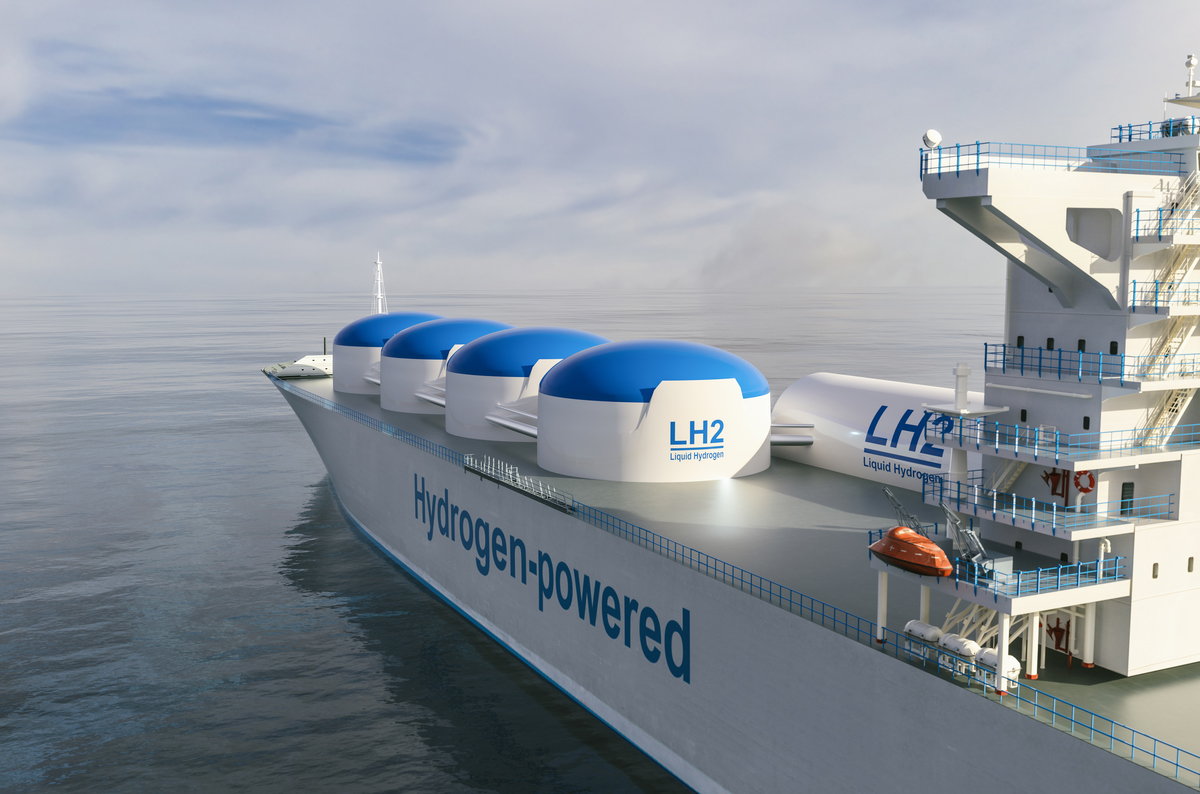Global consortium to create 'hydrogen highway' from Scotland to Rotterdam
UK-based Net Zero Technology Centre and the Netherlands' Port of Rotterdam have formed an international consortium to develop a low- and zero-carbon hydrogen supply chain on the European continent.

PHOTO: Model of liquid hydrogen carrier. Getty Images
In a pilot project called LHyTS, the consortium will transport hydrogen from Scotland to Dutch port of Rotterdam and other European destinations using liquid organic hydrogen carriers (LOHC).
Among the project partners, UK-based green hydrogen supplier EnQuest has committed to building a "New Energy hub" in Shetland, Scotland to produce 1 million mt/year of green hydrogen, according to Paul Massie, its director of corporate development and new energy.
Safe transportation of hydrogen
While hydrogen is projected to be critical to decarboning the shipping sector, it is highly flammable and has a low volumetric energy density. This makes its storage extremely difficult and costly. LOHC technology can eliminate the risk of fire during large-scale fuel transportation.
In LOHC technology, hydrogen is chemically bonded to a stable organic liquid carrier, which are derivatives of oil that react reversibly with hydrogen. It eliminates the need to compress hydrogen and makes transporting it safer and more cost-effective.
A major challenge associated with hydrogen export is transportation, and early studies have showed that LOHC has several advantages over ammonia, methanol and liquid hydrogen, says Hayleigh Barnett, project manager at the Net Zero Technology Centre. “Conducting an industrial scale trial is an exciting step in making LOHC export a reality.”
The project will use methylcyclohexane (MCH) as an organic liquid carrier for hydrogen. Chemically, MCH is a saturated hydrocarbon with a flash point of -4°C, and commonly used as a solvent.
French renewable energy technology company Axens will produce MCH for the project using its toluene hydrogenation technology.
Accelerating the green transition
"MCH-LOHC technology is capable of easily introducing hydrogen into Rotterdam from Scotland, safely and quickly, enabling energy transition and decarbonization to happen," says Osamu Ikeda, managing director of Chiyoda Corporation Netherlands.
“Storegga is right at the heart of those efforts with our Acorn Hydrogen project at St. Fergus and our Cromarty Green Hydrogen Project north of Inverness,” says UK-based Storegga’s head of hydrogen, Sarah Potts.
Other consortium partners include risk consultant ERM, a Dutch logistics company, and engineering company Chiyoda, along with support from the Scottish Government and Shetland Islands Council.
The Port of Rotterdam aims to supply northwest Europe with 4.6 million mt/year of green hydrogen by 2030 through imports and domestic production. The EU intends to produce 10 million mt/year of green hydrogen itself by 2030, and import another 10 million mt/year under its REPowerEU plan.
By Konica Bhatt
Please get in touch with comments or additional info to news@engine.online






